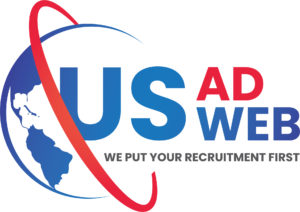Executive Order Creates Uncertainty for H-1B Visa Program
On April 18, 2017 President Donald Trump signed an executive order calling for a review of the H-1B visa program and directing the Secretary of State, Attorney General, Secretary of Labor, and Secretary of Homeland Security to “suggest reforms to help ensure that H-1B visas are awarded to the most-skilled or highest-paid petition beneficiaries.”
The H-1B is a non-immigrant visa that allows companies to temporarily hire highly skilled foreign workers in specialty occupations. The program is heavily used by tech companies, such as Apple, Google, and Microsoft, as well as IT outsourcing firms like Tata Consultancy Services, Infosys, and Wipro. In recent years, the number of applications has far exceeded the Congressional cap, which is set at 65,000 visas for each fiscal year, with an additional 20,000 visas available for foreign nationals with advanced U.S. degrees. When the United States Citizenship and Immigration Services (USCIS) has received enough petitions to reach the statutory limit, submissions are closed and applications are selected at random in what is referred to as the H-1B lottery. Trump took issue with the lottery system when he signed the executive order, calling the random selection process “wrong.”
This year the number of applications decreased for the first time in five years. USCIS reported receipt of 199,000 H-1B petitions, which is down from the 236,000 cap-subject petitions filed last year. This marks the first time since 2014 that the number of applications fell below 200,000.
It is unclear what may have caused the drop in petitions, but the H-1B program came under intense scrutiny during the 2016 election. The recent executive order is part of an effort to follow through on President Trump’s campaign pledge to “put America first” and to eliminate any abuses within the H-1B program. The executive order comes on the heels of new guidelines that were issued by USCIS at the end of March and a statement released in April at the start of this year’s H-1B filing season.
The March 31st policy memorandum specifically addresses computer-related positions and the question of which positions qualify as “specialty occupations” under the H-1B regulations. The memo states that “the fact that a person may be employed as a computer programmer and may use information technology skills and knowledge to help an enterprise achieve its goals in the course of his or her job is not sufficient to establish the position as a specialty occupation.” An employer must now provide additional evidence that a specific computer-related position qualifies as a specialty occupation under H-B guidelines. The new guidelines were released just at the onset of the H-1B filing season, allowing no time for applications to be amended.
On April 3, 2017 USCIS released the following statement: Putting American Workers First: USCIS Announces Further Measures to Detect H-1B Visa Fraud and Abuse. According to the statement, “USCIS will take a more targeted approach when making site visits across the country to H-1B petitioners and the worksites of H-1B employees,” to focus on:
- Cases where USCIS cannot validate the employer’s basic business information through commercially available data;
- H-1B-dependent employers (those who have a high ratio of H-1B workers as compared to U.S. workers, as defined by statute); and
- Employers petitioning for H-1B workers who work off-site at another company or organization’s location.
USCIS also created an email address for individuals to report tips and suspected abuse of the H-1B program.
The administration appears to be focusing primarily on IT outsourcing firms, most of which are headquartered in India, and which receive the largest number of H-1B visas each year. Politico’s Morning Shift reported that “the administration is considering additional ways that the president might use his authority to ‘rigorously enforce’ H-1B regulations. According to a background document from the White House, USCIS will soon identify on its website companies trying to bring foreign workers into the U.S.” Bill Stock, president of the American Immigration Lawyers Association (AILA), told Morning Shift, “I think we may see stricter adjudication standards for the cases that make it through the [H-1B visa lottery],” especially for outsourcing firms.
Murali Bashyam, managing partner of U.S.-based immigration firm Bashyam Spiro LLP, told Yahoo Finance that clients have been seeking clarification on the new guidelines and enforcement. He postulated that visa applications have decreased because employers “get the sense that it’s going to get so much tougher to comply with all of the changes […] that it might not be worth their money.” Some foreign nationals already working in the U.S. on H-1B visas are considering returning to their home countries, he said. “There is a fear that radical immigration changes are coming, and if those radical immigration changes come then it could completely change the way IT staffing companies do business.”
